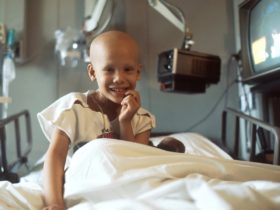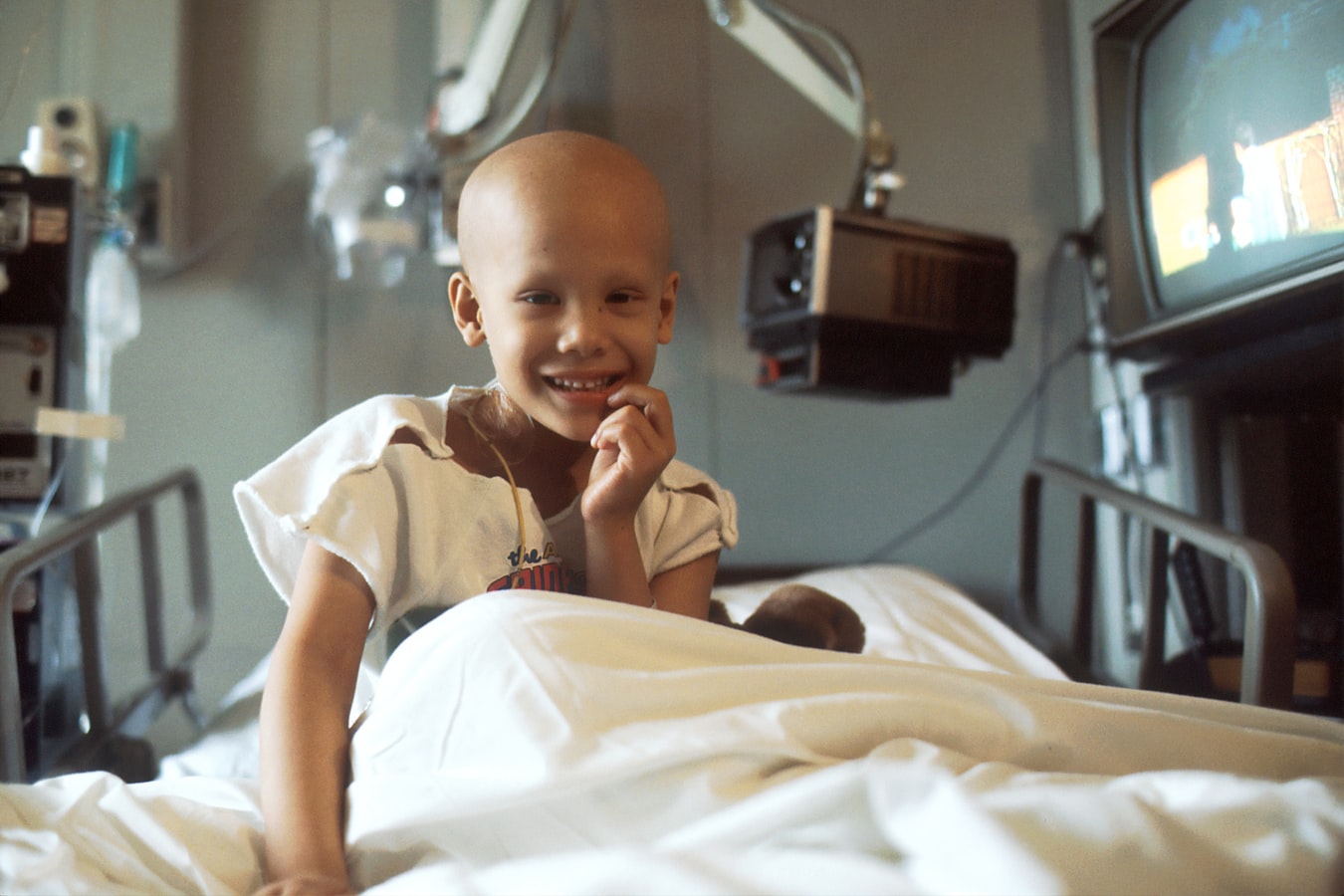While there is no one single cause for cancer, scientists believe that it is caused by the interaction of many factors. These factors involved may be genetic or environmental, with characteristics that differ with each individual.
The diagnosis, treatment, and prognosis for childhood cancers are very different in comparison to those for adult cancers. The main differences here are the survival rate and the cause of cancer, with the overall five-year survival rate for childhood cancer being about 80%, while adult cancers have a survival rate of 68%. This difference is probably because childhood cancers are more responsive to therapy and children can tolerate more aggressive therapy.
Childhood cancers can often occur or begin in the stem cells. A sporadic cell change, or mutation, is usually what causes childhood cancers. For adults, the type of cells that become cancerous are usually epithelial cells that line the body cavity and cover the body surface. Cancer usually occurs from environmental exposures to these cells over time and is sometimes referred to as acquired for this very reason.
Cancer Risk Factors
Some cancers, especially in adults, have been associated with exposures or risk factors. A risk factor is something that may increase someone’s chance of developing a disease. It does not necessarily cause the disease, but may make the body less resistant to it. Here are a few risk factors:
- Lifestyle Factors: Regular smoking, high-fat diets, and long-term work with toxic chemicals are examples of lifestyle choices that may be risk factors for adult cancers.
- Family History and Genetics: Genetics and family history may play an important role in some childhood cancers. It is possible for cancers of different forms to be present more than just once in a family. It is unknown if the disease is caused by a genetic mutation, exposure to chemicals, a combination of these factors, or just coincidence.
- Genetic Disorders: Some genetic disorders like Wiskott-Aldrich and Beckwith-Wiedemann syndrome are known to alter the immune system, a complex system that functions to protect our bodies from infections and diseases. One theory suggests that the cells in the bone marrow become damaged so when they reproduce to make more cells, they make abnormal cells or cancer cells.
- Virus Exposure: Exposures to certain viruses like Epstein-Barr virus and HIV have been linked to an increased risk of developing certain childhood cancers like Hodgkin and non-Hodgkin lymphoma.

























